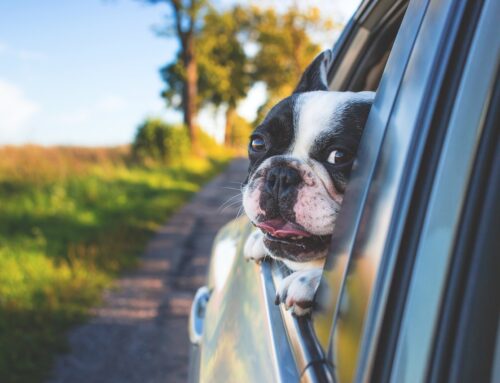Car insurance is a vital component of responsible vehicle ownership, providing financial protection and peace of mind in case of accidents or other unforeseen events.
But how exactly does car insurance work? Understanding its mechanisms and coverage types is essential for every driver. From liability insurance that covers damages to others to collision and comprehensive insurance that protects your own vehicle, car insurance policies offer various layers of protection.
Factors such as personal demographics, vehicle details, and geographic location influence premiums. By comprehending the fundamentals of car insurance, you can make informed decisions to safeguard yourself, your vehicle, and others on the road. Keep reading to learn more about how car insurance works.
What is car insurance and why is it important?
Car insurance is a contract between you and an insurance company that provides financial protection in the event of a car accident or other incidents involving your vehicle.
It is designed to cover the costs of damages, injuries, and liabilities that may arise from such situations. Car insurance is not only important for your own peace of mind but is also legally required in most states. Understanding how car insurance works can help you make informed decisions and ensure you have the right coverage for your needs.
What are the types of car insurance?
Car insurance policies offer various types of coverage, each serving a different purpose. Here are the main types of car insurance:
| Type of car insurance | What it covers |
| Liability insurance | It is the most basic and mandatory type of car insurance. It provides coverage for damages and injuries you may cause to others in an accident. There are two components to liability insurance: -Coverage for damages to others – this includes repairs to the other party’s vehicle or property. – Coverage for medical expenses -This covers the medical bills of the other party involved in the accident. |
| Collision insurance | Covers damages to your own vehicle resulting from a collision with another vehicle or object. It helps pay for repairs or replacement of your car, regardless of who is at fault. Collision insurance often comes with deductibles and coverage limits that determine the amount you would need to pay out of pocket. |
| Comprehensive insurance | Provides coverage for damages to your vehicle that are not the result of a collision. It covers incidents such as theft, vandalism, fire, natural disasters, and falling objects. Comprehensive insurance protects you against non-collision risks that can cause significant financial loss. |
| Personal injury protection (PIP) insurance | Personal Injury Protection (PIP) insurance, also known as “no-fault” insurance, is required in some states. It covers medical expenses, lost wages, and other related costs for you and your passengers, regardless of who caused the accident. |
| Uninsured motorist coverage | This is a type of car insurance that protects you if you’re involved in an accident with a driver who doesn’t have insurance. It covers the costs of injuries and damages you sustain in the accident. It can also apply in hit-and-run situations where the at-fault driver cannot be identified. It typically includes medical expenses, lost wages, and damages to your vehicle. |
What factors affect car insurance premiums?
Several factors influence the cost of car insurance premiums. Understanding these factors can help you assess and compare different insurance quotes. Here are the main factors that insurance companies consider:
Personal factors
Insurance companies take into account personal factors such as age, gender, and marital status. Younger drivers generally pay higher premiums due to their higher risk profile. Additionally, a history of accidents or traffic violations can result in increased premiums.
Vehicle factors
The make, model, and age of your car affect the insurance premium. Expensive or high-performance vehicles typically have higher premiums because they are costlier to repair or replace. Safety features and anti-theft devices can help lower the premium.
Geographic factors
Your location plays a role in determining the insurance premium. Areas with higher population densities, crime rates, or higher incidences of accidents tend to have higher premiums. Traffic conditions and the likelihood of theft or vandalism are also considered.
How to determine coverage limits and deductibles?
When selecting car insurance, you must determine the appropriate coverage limits and deductibles that suit your needs. Here’s what you should consider:
- Minimum coverage requirements – Each state has minimum coverage requirements that you must meet. It is essential to understand the specific requirements in your state to ensure compliance.
- Evaluating personal needs and risks – Assess your personal needs and the level of risk you are comfortable with. If you have significant assets to protect, you may want higher coverage limits. Consider factors such as your driving habits, the value of your car, and your financial situation.
- Balancing premiums and deductibles – Choosing a higher deductible can help lower your premium. However, keep in mind that you would need to pay more out of pocket in the event of a claim. Find the right balance that suits your budget and risk tolerance.
How to claim your car insurance?
When an accident or incident occurs, it is crucial to understand the claims process to ensure a smooth experience. Here are the general steps involved:
- Report the accident or incident – Notify your insurance company as soon as possible after an accident. Provide accurate and detailed information about the incident.
- Document damages and injuries – Take photos of the damages to your vehicle and gather any relevant documentation, such as police reports and medical records. This evidence will support your claim.
- File a claim with the insurance company – Contact your insurance company to file a claim. Provide all the necessary information and documents required to initiate the claims process.
- Assess damages and determine liability – An insurance adjuster will evaluate the damages and determine liability based on the policy terms and the circumstances of the accident. They may also consult with other parties involved.
- Claims settlement and payment – Once the claims assessment is complete, the insurance company will provide a settlement offer. If you agree to the offer, they will proceed with the payment according to the terms of your policy.
Where can you buy car insurance from?
You can buy car insurance from various sources, including:
- Insurance companies: Contact insurance companies directly either through their websites, phone calls, or in-person visits to their local offices.
- Independent insurance agents: Independent agents work with multiple insurance companies and can help you compare policies and find the best coverage for your needs.
- Captive agents: Captive agents represent a specific insurance company and can assist you in purchasing their policies.
- Online insurance marketplaces: Utilize online platforms that allow you to compare quotes and policies from multiple insurers in one place.
Consider factors like customer service, reputation, coverage options, and competitive pricing when choosing where to buy your car insurance.
Frequently Asked Questions (FAQs)
What happens if I let someone else drive my car?
If someone you permit to drive your car gets into an accident, your car insurance may provide coverage, but it depends on your policy. Check with your insurance company to understand the specific terms and conditions.
Will my car insurance cover me if I drive someone else’s car?
Generally, car insurance follows the car, not the driver. If you are driving someone else’s car with their permission, their insurance policy may provide primary coverage. However, it’s best to check with the car owner and their insurance company to ensure proper coverage.
Can I change my coverage limits and deductibles?
Yes, you can typically adjust your coverage limits and deductibles when renewing your policy or making changes. Discuss your needs with your insurance company to find the right balance of coverage and cost.
What should I do if my car is stolen?
If your car is stolen, immediately report it to the police and your insurance company. Provide them with all the necessary details and documentation to initiate the claims process.
Conclusion
By understanding how car insurance works, you can make informed decisions when choosing coverage, ensure compliance with legal requirements, and be prepared in case of an accident or incident. Remember to review your policy regularly and compare quotes from different insurance providers to find the best coverage and rates for your needs.


